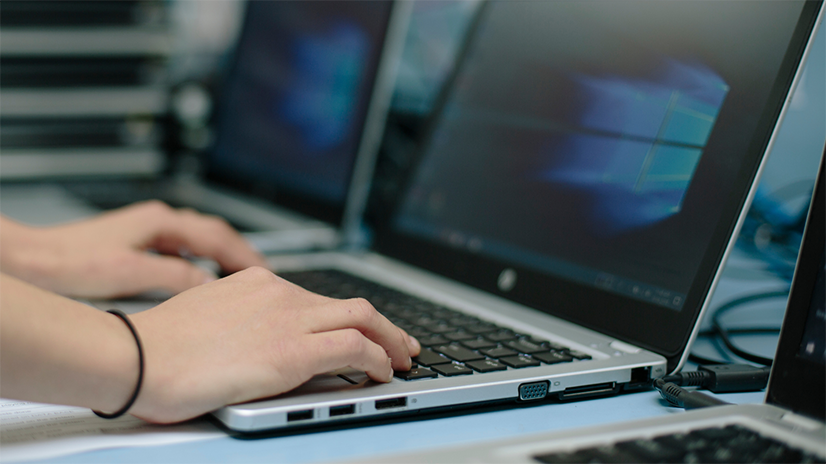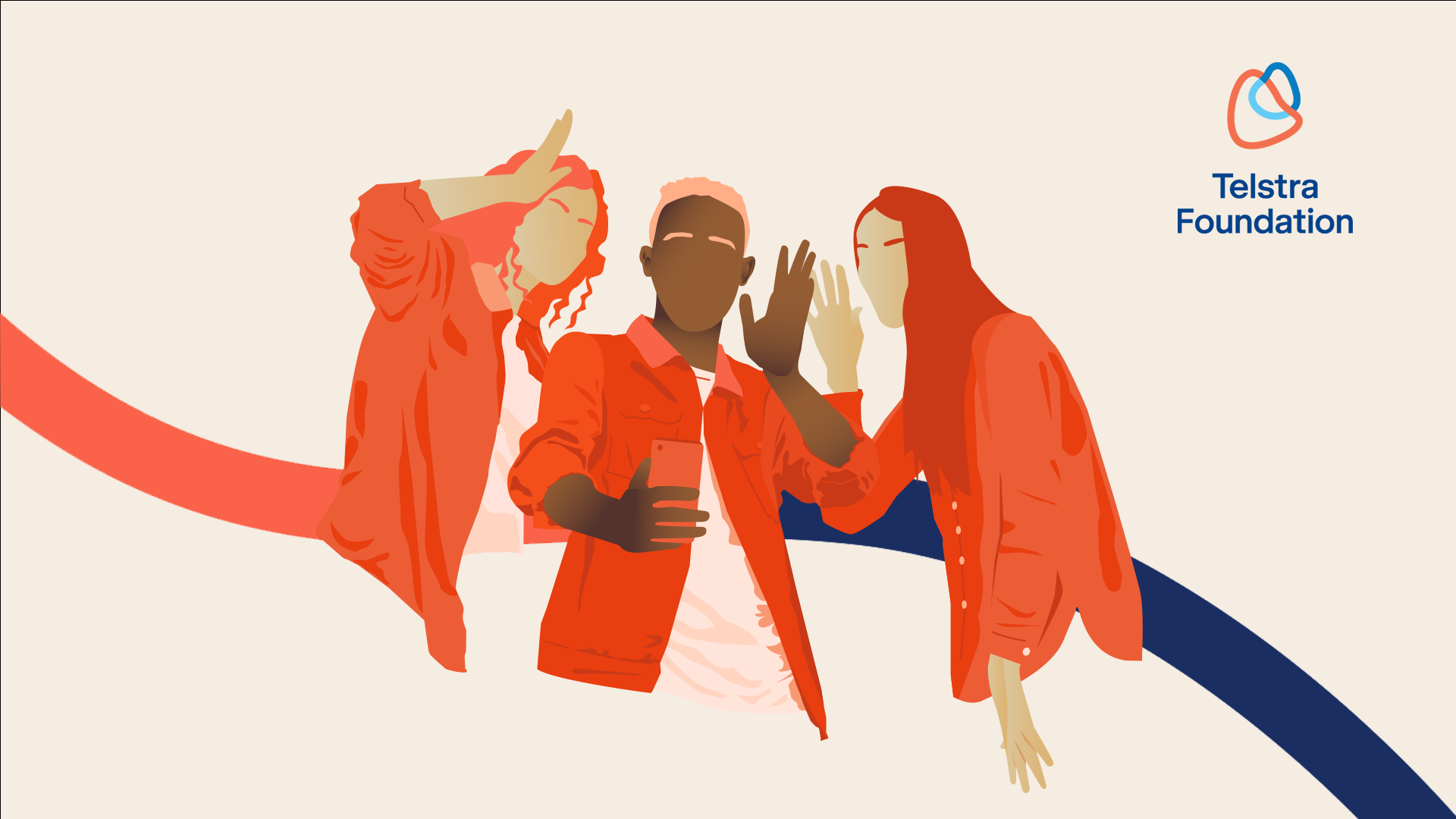Our mission
At the Telstra Foundation we’re aiming to help one million children and young people across Australia, to be more included, empowered, and connected by 2030.
Helping us to achieve this are the amazing non-profit organisations we’re partnering with, through our Young & Connected fund. They’re delivering remarkable programs – co-designed with children and young people – that are going to make a real difference in underserved communities.
Our three focus areas
- Included: enhancing digital skills and careers,
- Empowered: promoting digital safety and wellbeing
- Connected: ensuring access and connectivity
In this blog, we’re taking a look at our Connected focus area and the partners that are creating great impact in this area.
Take a look at our blogs on our Included focus area, “Telstra Foundation: bringing more young people into the digital world,” and Empowered focus area, “Empowering children and young people online.”
Why being connected is so important
In today’s digital world, where education and technology go hand in hand, the importance of digital access cannot be overstated. For children and young people in Australia, computers and internet connectivity have transcended the status of luxury commodities, to become absolute necessities. The integration of online resources and devices into schoolwork is not just a trend but a fundamental component of modern education.
However, not all students are equal when it comes to digital access. A significant number of young learners face the challenge of inadequate access to technology devices, placing them at a considerable disadvantage within Australia’s digital learning landscape1Refer to footnotes. This is more than just a barrier to completing homework; it’s a hurdle to achieving their full potential.
To combat this inequality, device donation and lending schemes have emerged as practical solutions. These initiatives aim to dismantle the barriers to connectivity, and provide students who are missing out with the tools they need to make the most of their education1.
A focus on connecting those who need it most
The issue of digital access, however, extends beyond education and into the realm of mental health. With a growing youth mental health crisis in Australia, the need for accessible mental health and wellbeing services is more pressing than ever. Digital delivery of these services presents a promising avenue expanding the reach of support beyond traditional methods2.Refer to footnotes
Alarmingly, many young Australians find themselves unable to access clinical services and wellbeing resources that are crucial for their mental health journey2Refer to footnotes. This gap in service delivery can leave vulnerable young people without the support they need at critical times.
In response, there is a burgeoning recognition of the value of digital mental health and wellbeing services that are specifically designed for and with young people. These services have the potential to improve access to safe treatments and resources, offering a lifeline to those in need. By connecting young people to support when and where they require it, these digital platforms can play a pivotal role in addressing Australia’s youth mental health crisis2Refer to footnotes.
That’s why we’re partnering with this incredible group of non-profit organisations, who through their projects are going make a huge difference in connecting children and young people from underserved communities.
Footnoes
Take a look at our ‘Connected’ partners
WorkVentures

WorkVentures – Will establish a National Device Bank, revolutionizing their funding model to provide refurbished devices to low-income students, aiming to distribute 10,000 devices in the first year. Caroline McDaid, CEO of WorkVentures said, “Our recent research showed that 84% of students with inadequate access to a computer had trouble finishing class work and assignments, and sadly we estimate this impacts as many as 1 million school kids today. That’s why we’re passionate about providing laptops to the communities who need them most. Through the National Device Bank, we’re working to make sure every Australian child has the critical digital access required to thrive in the 21st century.”
MINUS18

MINUS18 – Through the ‘Transforming inclusion for LGBTQIA+ youth’ project MINUS18 will provide education and training to create inclusive environments in schools and workplaces. “We know that two out of three LGBTQIA+ youth in Australia still experience discrimination just for who they are. So, our goal is to empower 25,000 people with the resources they need to better understand and support the LGBTQIA+ young people in their lives ,” said Micah Scott, CEO, MINUS18.
University of NSW

University of NSW – Are delivering an innovative mental health project that seeks to develop a culturally appropriate model of care for young Indigenous Australians. Said Professor Maree Toombs, leading the project for UNSW, “This innovative mental health project will ask young Yolŋgu people between 15 and 24 years of age about their views on mental health and wellbeing. By centring their voices and developing a model of care from both non-Indigenous and Indigenous worlds and bodies of knowledge, this project will enable a self-determined and much more effective approach to mental health treatment for them.”
Psykinetic

Psykinetic – Is gearing up to launch AURA, an advanced computing device designed to give young people with severe and profound disabilities greater independence in communication and computing, and to expand its companion the StarGaze app store. Dr Jordan Nguyen says, “our commitment to innovation with Aura and Stargaze, puts this project at the forefront of assistive technology design. We’re all about co-designing with young people with severe and profound disabilities, this digital technology can give them greater independence, quality of life and social inclusion.”
The ARC Centre of Excellence for the Digital Child (Digital Child)

The ARC Centre of Excellence for the Digital Child (Digital Child) – Are going to advance digital inclusion and literacy among children in low-socio-economic and culturally diverse communities through their ‘Uplifting Digital Connections for Young Minds’ project. “We’ve experienced a lot of projects that come in and tell us what’s best for our communities without truly understanding the needs. That’s why we’re using co-design to work with community. We employ local people, and we engage deeply with each community building from their strengths. This will drive more impactful outcomes and better futures for Aboriginal and Torres Strait Islander young people,” says Professor Susan Danby, Director and Chief Investigator, ARC Centre of Excellence for the Digital Child.
Our ‘included’ partners share our belief that young people’s access to quality digital skills education, is fundamental to a fairer, more equitable and inclusive digital society.

